SUMMARY
This is AI generated summarization, which may have errors. For context, always refer to the full article.
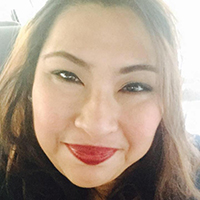 Every time I visit Davao, I can’t help but admire how the city is truly progressive. I mean this not just in reference to its economy but its strong programs on gender, reproductive health and anti-trafficking. Talk to any Davaoeño and they will credit their mayor for this.
Every time I visit Davao, I can’t help but admire how the city is truly progressive. I mean this not just in reference to its economy but its strong programs on gender, reproductive health and anti-trafficking. Talk to any Davaoeño and they will credit their mayor for this.
His record of public service is exemplary. In the context of Davao, where people used to be familiar with crimes and political killings, Duterte’s brand of leadership was a welcome change. It brought peace and order. It instilled fear among criminals, forcing them out of Davao. It worked. Only those who have done something wrong should fear the discipline. For the majority, they are able to sleep comfortably at night knowing that they and their families and friends are safe under the mayor’s watch.
Never mind that he is a self-confessed womanizer, he is a strong advocate of women’s rights anyway. His Women Development Code paved the way in mainstreaming gender sensitivity through legislation. Let’s not bother with the fact that he is accused of tolerating the killings of children in conflict with the law, as he is known to be a supporter of children’s right to protection. He has established a Women and Children Protection Unit to provide psychological intervention for victims of physical or sexual assault.
Let us forgive the fact that he publicly supports the Davao Death Squad vigilante group who preys on petty and common criminals, nor the fact that he openly admitted pulling a trigger to a few of these criminals and drug pushers. He has been tolerant of political activism in Davao anyway and has strong ties with communist guerillas.
The bitter pill
Despite Duterte being a man of contradictions, his people love him. He gave them what they want – peace, order, security, and progress. He has successfully instilled fear in their hearts and minds that led them into accepting his brand of leadership and ultimately, the person that he is. Soon, other cities began to follow his unconventional ways of addressing crime and drug problems. The Human Rights Watch reported on former Tagum City Mayor Rey Uy’s involvement in extra-judicial killings.
With Duterte running for President, the nation is excited. Perhaps, it is the failure of the justice system to deliver swift justice, the weak law enforcement, the refreshment that a candidate not coming from the traditional political elite is running, or the thirst for an unconventional leader with a style so different from the traditional politicians the country is so used to, that is fueling the clamor for Duterte’s strong and unwavering style of leadership.
My Facebook newsfeed is witness to the reverence to this man who doesn’t kiss ass, who does not dance to the church’s influence, who practices iron-fist discipline, who represents effective local governance, and who exudes uncanny methods of leadership. Some even attribute him as the Heneral Luna of our times, building on the success of the film that captured the country’s sense of nationalism.
The Filipino people in May will decide if they want Duterte as their next President. I, myself, would love to see the reproductive health law fully implemented, and stronger law enforcement and anti-trafficking efforts. Frankly, there are really limited options left.
I truly understand that for all his shortcomings, Duterte represents the hope of the people for radical change and genuine reforms. As one friend mentioned, it is a bitter pill to swallow but it is the medicine.
Majority of the nation from class A-D would willingly swallow that bitter pill if it means that the traffic situation in Metro Manila will get better, if they won’t have to fear those “riding-in-tandem” from snatching their hard day’s earnings, if a swifter type of justice will make them sleep better at night. After all, they have already endured past Presidents who have robbed them of the right to basic social services, of their right to live decently with dignity.
What is left to lose? Perhaps, Duterte is the change the country needs.
My problem with Duterte
My problem with the whole brouhaha with Duterte’s candidacy is the idea it espouses along with it. Truly, Davao is a progressive city, but this is a progress built on the foundation of fear. It has silenced criminals, drug pushers, and rapists, giving the people a sense of security, peace and order.
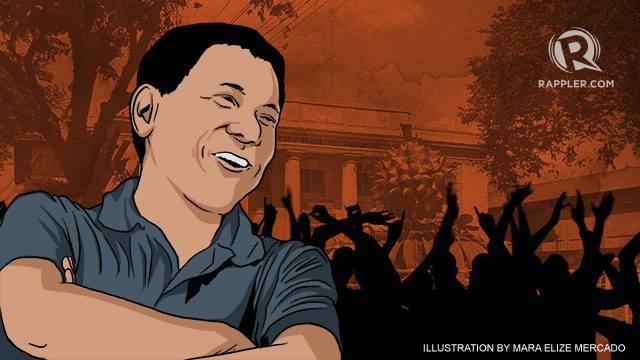
This kind of “silencing,” however, only gives a false sense of security, peace and order and fails to address the roots of the problem. Real peace and development stems from addressing social inequalities and the respect for human rights.
I understand that the clamor for Duterte’s brand of leadership is a product of the perpetual frustration of the Filipino people in a government that consistently fails to deliver the promise of a democracy. I fear that the celebration of Duterte’s leadership delivers the message that it is okay to sacrifice human rights if this will lead to a better Philippines.
Is it not that this very thinking is the foundation of a tyranny that our nation has fought against for so many years?
I am saddened that our people have reached this point that we have no confidence in our justice system, in the ideals of democratic government, that we are so willing to sacrifice life and liberty for the sake of a semblance of progress, that we have succumbed to a mindset that we need to kill criminals and wrong-doers to discipline ourselves.
They say Filipinos have a short memory. We have easily forgotten the terrors of Martial Law. We would rather content ourselves with short-term solutions to deeply entrenched problems. “Gawan ng paraan,” (finding a way) “diskartehan” (strategy) – are celebrated as Filipino ingenuity.
Perhaps this is why we are fascinated with the term resiliency, and why we use this excuse every time a disaster hits us. Our strength as a people is that we endure, stay intact, and get back to our former shape. Centuries of Spanish colonization, decades of American colonialism, and 21 years of tyrant rule have not transformed us.
‘No easy road’
We always fall in the trap of personality politics, as if one strong man can change our lives overnight. Here we are again. We welcome another messiah whose brand of leadership will lead us to salvation. I will credit Duterte for inspiring us to believe in the electoral process again, for making those who normally do not vote think of participating again, for awakening hope that perhaps this government with his leadership can work this time.
However, I will raise my voice in appealing to my fellow Filipinos, to think twice. If Duterte wins, does what it is expected of him, and then gracefully leaves the Presidency after his term expires, what will happen to us? Do we change our constitution and re-elect him? Do we look for another Duterte to emerge? Think twice not about electing Duterte to office but about the mindset his candidacy is espousing.
I fear for a generation whose culture disregards human rights, whose idea of discipline is rooted out of fear, and whose notion of progress alienates the concept of justice.
We accept this model of “effective” governance because we want to remain comfortable in our sleep every night with the thought that we are safe from the ills of society, that we do not have to painfully struggle for our rights and welfare to be taken care of, because we have a superhero that will pull the trigger for us to keep the villains away.
But we know fully well that there is no easy road to genuine peace and progress. We, as a nation, as a people, have been uncomfortable for very long. Our genuine comfort lies in the assertion of our rights and dignity, in our active involvement in governance and making democracy work for us every day. We have forgotten so easily that we, collectively, have that power to transform our lives, our community, our nation and society. And it requires us to struggle.
If there is one thing that the message of the film, Heneral Luna, should have taught us, it should have made us realize Heneral Luna’s failures. The most important ingredient into making deep and meaningful change is to empower the people. You may root for Duterte because there is no better option for you, but openly criticize his stance on human rights. You may vote for Duterte because he exemplifies good governance, but do not equate good governance with the presence of extra-judicial killings. Do not gloss over Duterte as the charmed one. Demand genuine platform for reforms.
Heneral Luna may have been the best person that could have led us to victory in the war, but if he fails to educate, to organize, to empower the people in the struggle, then the revolution is bound to fail. We have been wanting and wailing for real change to happen in the country for a long time now, but, we always forget to take part in the revolution every day. – Rappler.com
Leni Velasco is the Executive Director of Dakila, a group creatively building a movement of heroism towards social transformation.
Add a comment
How does this make you feel?
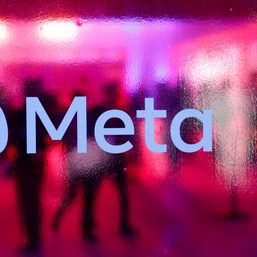
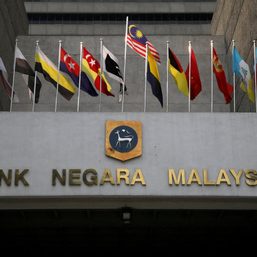
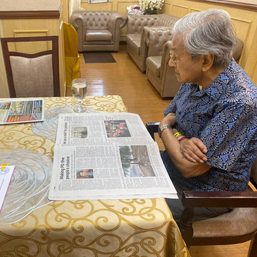
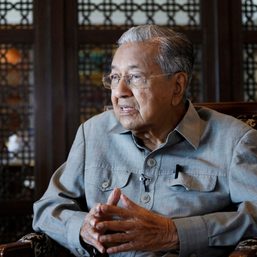
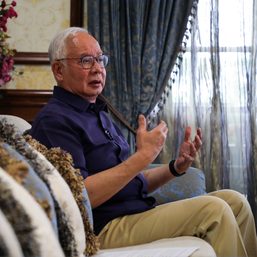
There are no comments yet. Add your comment to start the conversation.